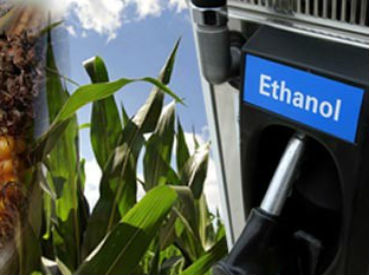The country’s targets for ethanol-blended petrol continue to be missed largely on account of inadequate ethanol production.
The Centre has set a target of 10 per cent ethanol blending in petrol by 2022. This is an excessively ambitious target, given the actual achievement: blending was 3.5 per cent in the 2016-17 sugar season and 4 per cent in the 2015-16 season. Going by this, the target seems unachievable during the 2017-18 sugar season, too.
Data compiled by the Indian Sugar Manufacturers Association (ISMA) show that there is a requirement of 31.36-lakh kilolitres of ethanol in the 21 States where the Ethanol Blending Programme (EBP) is being implemented. But there has been a supply commitment of only 17.63-lakh kilolitres of the biofuel for the December 2017 to November 2018 period.
The shortfall in ethanol supply is being felt in all the States except Maharashtra and Uttar Pradesh, the two regions that account for the bulk of sugarcane production in the country. Against a requirement of 3.5-lakh kilolitres, Uttar Pradesh saw an offering of 6.35-lakh kilolitres. In Maharashtra, against a requirement of 4.36-lakh kilolitres, 5-lakh kilolitres was offered.
Key factor
The reason for the divergence in the trends between Uttar Pradesh and Maharashtra is believed to be an export tax levied by the Uttar Pradesh government, which disincentives inter-State movement.
According to Abinash Verma, Director General at ISMA, UP charges ₹2 on every litre of ethanol sold to other States. “The UP government has not removed this levy despite a reprimand from the Prime Minister’s Office,” Verma said.
Verma added that the PMO letter dated May 9 citing the Industries (Development and Regulation) Amendment Act, 2016, said it was illegal for the State government to tax ethanol supplies for non-potable purposes.
According to Verma, only Karnataka, Maharashtra, Gujarat and Goa have removed controls over inter-State ethanol movement meant for EBP. “The pace of easing regulation on ethanol transport has been slow and this is impacting industry’s supply commitment,” he said.
Haryana, on the other hand, recently increased the levy on ethanol brought into the State to ₹3 from ₹2. Interestingly, there was no tax on ethanol used for blending before the Manoharlal Khattar government came to power in 2016, said Verma.
Responding to allegations of State governments levying duties on export or import of ethanol, YB Ramakrishna, Chairman of the Working Group on Biofuels under the Ministry of Petroleum and Natural Gas, said, “The Supreme Court has clarified that States are not allowed to control or tax ethanol supplies meant for blending with fuel and industrial purposes.”
“The ethanol manufacturers have already made supply commitments and they have been meeting them till now. There has been no representation to say that they are getting a better price for ethanol from distilleries,” Ramakrishna countered.
“Oil marketing companies need ethanol throughout the year and have set up storage facilities for the same when there is a dip in supplies. Ethanol manufacturers have also been asked to set up storage facilities to better manage their produce,” he added.












